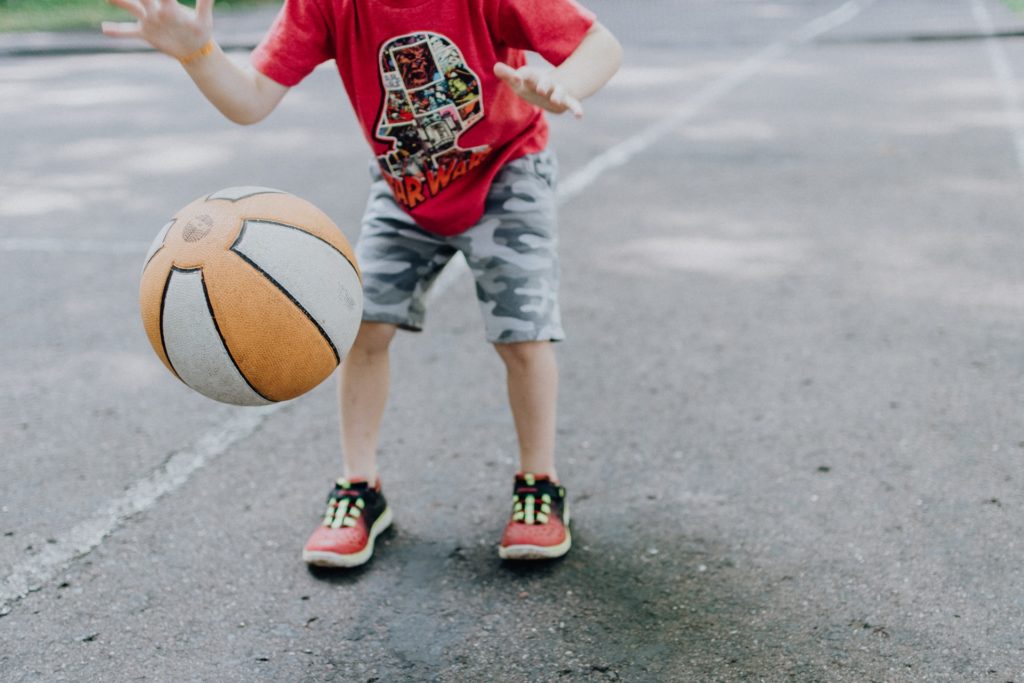A year of the coronavirus and its related lockdown measures has left youth sports clubs with a sharp decline in the number of new registrations, and concerns about the physical fitness of kids across the country.
Many young people haven't been able to play team sports in over a year now, and while relaxations may be coming on 8 May, the loss in athletic development is already huge, experts say.
“The breach that Corona has made in the sports development of our children is enormous,” Bob Browaeys, Director of Sport at Voetbal Vlaanderen, told De Standaard. “I am very pessimistic about it. This will reverberate for years.”
While the learning backlog for children as a result of the coronavirus is considered so substantial that experts are calling for a shortened summer holiday, reporting by De Standaard found that the delay in athletic development may be just as severe.
“But many teenagers have been deprived of any kind of sport for months,” said Robin Ramakers of the Flemish Sports Federation. “That’s really disastrous.”
Ramakers is looking forward to impending relaxations, but what sort of developmental delay should coaches and others involved in youth sports expect?
“There is research from Portugal that shows that the physical and motor skills of young people deteriorated by 20 to 30% during the five-month lockdown there,” said Movement Sciences and LO professor Matthieu Lenoir (UGent).
“That’s the normal progress you make in one year to one and a half. I don't think here in Flanders it has really sunk in yet how bad that is.”
The effect will vary depending on the sport.
“We are lucky that you can learn a lot in basketball in a period of about four years, so you can still make up for it if a year or a year and a half has passed,” said Koen Umans of Basketball Flanders.
“But young gymnasts, young tennis players, they really need to learn the right skills from the start and this evolution cannot be interrupted, otherwise you will never reach a certain level.”
Related News
While starting early in those sports is critical, the number of new enrolments the sports clubs are seeing is startlingly low.
“We see dramatic figures in the number of young people who have joined a club for the first time in recent months,” said Browaeys. “Across the most popular sports combined, we are talking about thousands less new registrations.”
Parents may be waiting to sign up because they’re not keen on paying membership fees for a hobby that may continue to be forbidden by coronavirus-related restrictions.
“Those kids of six, seven, eight years old learn crucial things,” said Browaeys. “Hand-eye coordination. Being able to estimate the trajectory of the ball. Reading the game.”
“We, too, have had a standstill when it comes to young players,” said Umans. “We are more than a thousand registrations behind. Will we ever see those kids back on the basketball court?”
And even while young people at top sports schools have largely been able to train as usual, there haven’t been any competitions, something that worries coaches.
“A match for a child is a huge boost: for motor skills, for technique, for motivation,” said Browaeys.
But such contests were rare, and there were no international matches or tournaments at all, meaning talent scouts had no chance to discover any potential diamonds-in-the-rough, or the next big star for a given sport.
“We are definitely going to lose talent,” said Owen Malone of the Flemish Athletics League.
“Less discovered talent and less well-trained youngsters: that will make for bad World Cups in say, eight years from now,” said Ramakers. “It will be slightly less in terms of talent and performance.”
While every country has had to impose measures to fight coronavirus, not all of them have imposed measures against youth that are as strict as Belgium’s.
In Spain, for example, the basketball competitions for young people never stopped.
“Those differences will perhaps become clear later,” said Ramakers. “We don’t know that yet.”
Gaps in training won’t be easy to make up, as sports come secondary to education even for top youth athletes. It isn’t as simple as adding more training hours into the week. Grades could suffer, and injuries could occur.
Furthermore, even when sports are allowed to resume, many of the country’s sports halls are currently being used as vaccination centres.
“We can use the hall next door, but it is not big enough for official competitions,” said Marc Van Kemmel, chairman at BBC Poperinge. “So we are now thinking of using the school's gymnasium, where we would have to paint new lines.”
“But can we resume normal life quickly? No, I don't see it.”
The Brussels Times

